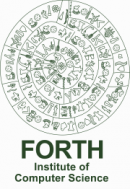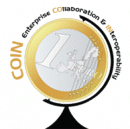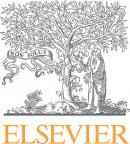PhD Symposium
The ESWC2011 PhD Symposium aims at providing starting PhD students with a platform for receiving feedback on their work by other PhD Students and experienced researchers outside their own group or university. The Symposium aims at students doing their PhD in the area of semantic web technologies or related topics, in particular, this includes the topics of the ESWC2011 special tracks.
- Social Web and Web Science
- Ontologies
- Reasoning
- Semantic Data Management
- Linked Open Data
- Software, Services, Processes and Cloud Computing
- Natural Language Processing
- Sensor Web
- Mobile Web
Note, that submissions should have a clear focus on the use or the development of semantic web technologies in or for at least one of these areas. For more detailed information about possible topics we refer to the Call for papers of the respective track. While the Symposium is open to all PhD Students, it is first of all meant for PhD Students at the beginning of their work that have a well defined problem statement and some ideas about the solution that they want to discuss with.
Submissions should be structured around the following topics which are the key methodological components required for a sound research narrative:
- Problem: describe the core problem of the PhD and motivate its relevance for the Semantic Web area;
- State of the art: describe relevant related work and point out areas that need to be improved;
- Proposed Approach: present the approach taken and motivate how this is novel with respect to existing work;
- Methodology: sketch the methodology that is (or will be) adopted and, in particular, the approach to be taken for evaluating the results of the work;
- Results: describe the current status of the work and any results that have been reached so far;
- Conclusions and future work: conclude and specify the major items of future work.
Note that students which have a paper accepted in the main research track on a certain topic can still submit a paper in which they describe the overall idea and status of their PhD following the template above.
Each submitted paper will be reviewed by a number of experienced researchers that provide feedback on your plans and suggest future directions. The Program committee will pick papers for oral and poster presentations. Accepted papers will be published in the proceedings of ESWC 2011 that are published by Springer in the LNCS series. Further, authors of accepted papers can apply for a travel grant. Details about the application will be announced after the notification.
Submissions must be no longer than 5 pages and must be formatted in the style of the Springer Publications format for Lecture Notes in Computer Science (LNCS). Papers must be in PDF (Adobe's Portable Document Format) format and must be submitted electronically through the conference submission site. Papers will not be accepted in any other format.
Important Dates
| Submission | January 13th, 2011 - 23:59 Hawaii Time expired |
| Notification of acceptance/rejection | February 24th, 2011 expired |
| Camera Ready | March 10th, 2011 expired |
Submission
EasyChair Link: http://www.easychair.org/conferences/?conf=eswc2011phdsymposium
PhD Symposium Program Committee
- Diego Calvanese, Free University of Bozen-Bolzano, Italy-IT
- Bernardo Cuenca Grau, University of Oxford, United Kingdom-UK
- Mathieu D'Aquin, Open University, United Kingdom-UK
- Jianfeng Du, Chinese Academy of Sciences, China-CN
- Giorgos Flouris, ISL, FORTH-ICS, Greece-GR
- Tim Furche, Computing Laboratories, Oxford University, United Kingdom-UK
- Zhiqiang Gao, Southeast University, China-CN
- Pascal Hitzler, Wright State University, United States-US
- Laura Hollink, Delft University of Technology, Netherlands-NL
- Zhisheng Huang, Vrije University of Amsterdam, Netherlands-NL
- Juanzi Li, Tsinghua University, China-CN
- Diana Maynard, University of Sheffield, United Kingdom-UK
- Jing Mei, IBM Research China, China-CN
- Ralf Möller, Hamburg University of Technology, Germany-DE
- Dimitris Plexousakis, FORTH-ICS, Greece-GR
- Guilin Qi, School of Computer Science and Engineering, Southeast University, China-CN
- Alan Ruttenberg, Science Commons, United States-US
- Manuel Salvadores, University of Southampton, United Kingdom-UK
- Kai-Uwe Sattler, Ilmenau University of Technology, Germany-DE
- Stefan Schlobach, Vrije Universiteit Amsterdam, Netherlands-NL
- Murat Sensoy, University of Aberdeen, United Kingdom-UK
- Luciano Serafini, Fondazione Bruno Kessler, Italy-IT
- Yi-Dong Shen, Chinese Academy of Sciences, China-CN
- Kavitha Srinivas, IBM Research, United States-US
- Giorgos Stoilos, Oxford University, United Kingdom-UK
- Heiner Stuckenschmidt, University of Mannheim, Germany-DE
- Vassilis Tzouvaras, National Technical University of Athens, Greece-GR
- Haofen Wang, Shanghai Jiao Tong University, China-CN
- Kewen Wang, Griffith University, Australia-AU
- Shenghui Wang, Vrije Universiteit Amsterdam, Netherlands-NL
- Benjamin Zapilko, Leibniz-Institute for the Social Sciences, Germany-DE
- Ming Zhang, Beijing University, China-CN
- Yuting Zhao, University of Aberdeen, United Kingdom-UK








